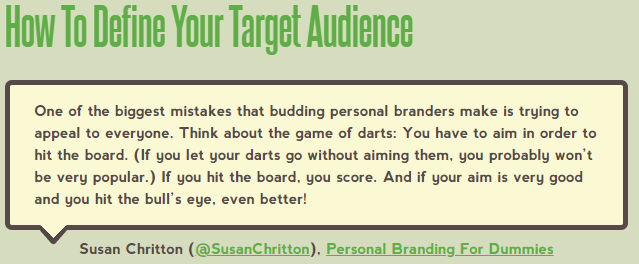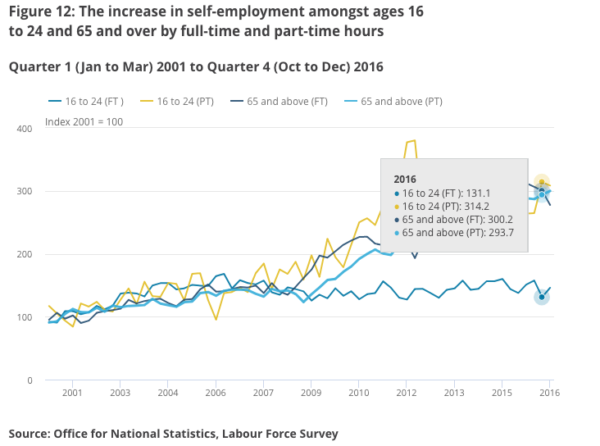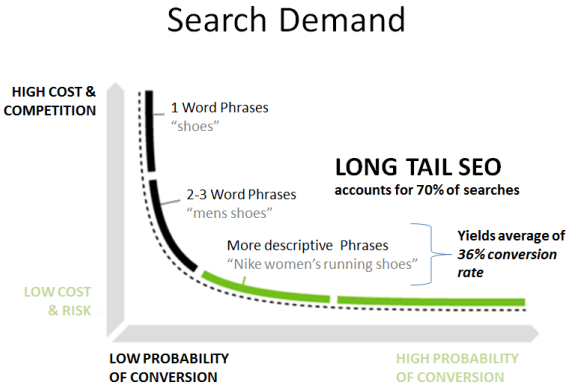What Is WordPress SEO?
WordPress SEO is search engine optimisation on sites built using WordPress. The aim is to improve the ranking of your pages in search results for targeted keywords so that your audience can more easily find you online. The higher you rank, the more organic traffic you will receive, and the less you’ll need to spend on PPC advertising.
Why Is WordPress SEO Important?
WordPress is a content management solution and a tool that allows you to build web pages. It comes with several in-built SEO advantages compared to other platforms. For instance, it’s built for content creation, has SEO-friendly themes, and offers a source code that pleases most search engines.
With that said, additional WordPress SEO is still important. There are now more than 455 million websites that use the platform, and the number is growing daily. If you want to stand out, you have to go beyond the standard tools and feature set offered by the CMS.
WordPress SEO is important for the following reasons:
- Organic search is one of the primary sources of traffic. Only a minority of users click banner ads or ads in search results
- SEO helps your brand create trust and reliability. If your page is at the top of Google SERPs, users know that you must be doing something right
- SEO improves user experience. While WordPress is a slick platform, it’s not without its flaws. In many cases, it doesn’t achieve Google’s PageSpeed criteria. Search engine optimisation experts need to go in and improve it
- Metadata is not automatic on WordPress. To reap the SEO benefits of meta tags, meta descriptions and SEO titles automatically, you need to install the correct plugins. These let the CMS create these automatically for you.
- Images aren’t necessarily optimised. While WordPress is famous for being lightweight, there are always improvements that you can make to images. This reduces loading times without compromising fidelity.
Of course, these are just a small snapshot of the reasons for using SEO on WordPress. There are many more.
WordPress SEO Best Practises
To get the most out of your WordPress site, you’ll need to employ some best practises. These are techniques that SEOs have learned over the years and help to make sites perform.
- Link using the correct categories and tags. When you do this, it makes it easier for users to find the content that they want. It also helps search engine web crawlers visit all your pages and discover the structure of your website.
- Internally link whenever you can. This is important because of how search engines assign “page authority” on your site. Google wants to know which pages are most relevant, and which are supportive.
- Optimise your comments. Comments are an indication of engagement. The more you have, the better. However, comments on old pages can sometimes slow loading times. That’s why it’s important to paginate.
- Choose summaries. WordPress displays full article content on all the major pages of your site, such as home page, tags archive, author pages, etc. Sometimes, search engines interpret this as duplicate content, which is bad for SEO. You can eliminate this by going into Settings >> Reading and then selecting summary.
If you’d like a WordPress SEO expert to help you improve your pages’ ranking, then get in touch with Website Promoter today.
Story Time: A London SEO Expert Success Story You’ll Never Believe
Paul wasn’t an expert at SEO when he started.
In fact, he was a self-proclaimed newbie.
Yet, with just one incredible piece of content, he became a top London SEO expert overnight.
That one piece of content now ranks at the top of Google for its keyword, ahead of established websites and experts.
That’s a success story by anyone’s definition, following the success, I was able to use the valuable information to rank my own site high on the almighty Google and claim my position with my own bespoke affordable SEO services and my free SEO tips and advice on my blog.
Need To Hire An SEO Expert To Get More Traffic To Your Website?
Get A Free Website Health Check Now.
Call 01736 762208
Let Us Help You Grow Your Business Online Today.

So Back to Paul, how exactly did he manage this fantastic feat of SEO ingenuity?
#STEP 1: He Refined His Target Audience
Luckily for Paul, his target audience was him!
Newbies that were intrigued about SEO, but didn’t know where to start.
He was desperately searching online for a list of SEO tools that would help him get started with his website promotion.
He quickly realised that a good resource didn’t actually exist (that was then).
Because he was his own target audience, he was able to spot that gap in the market.
It just proves that your first step is to understand exactly what your target audience wants.

Finding your target audience and figuring out what they want can take a little work.
Even if you fall within the same demographics and share the same interests as your target audience, you should still spend some time figuring out what your audience wants.
Of course, it helps if you are your own target audience.
It makes it easier to spot what your audience wants and what they’re not getting that you can offer for them.
But just because you fall within your target audience, it doesn’t mean that you represent everyone that you want to target.
Paul still had to spend time taking a closer look at what his target audience wants.
He already had a good idea of what they were looking for, but he also needed to consider the background of his audience.
He did some work to figure out some things like his audience’s demographics, including age, gender, location, and education.
It’s also important to know about what your audience is interested in, what their goals are and what things matter most to them.
All of these things make it easier to make better decisions about SEO and producing the best SEO content.
Paul knew that when refining his target audience, it was a good idea to be as specific as possible.
As well as defining his audience in general terms, creating buyer personas helped him to really get deeper into who his audience is.
Newbies who are interested in learning more about SEO could have a variety of backgrounds.
Some might be aiming to become SEO experts.
Others might be looking for information on how to promote their personal or business website.
They want to know how to use SEO effectively for their own site but are less likely to offer their newfound skills to others.
More specifically, these people are likely to be small business owners, freelancers or perhaps people building a hobby website.
To learn more about who they might be, Paul did some research on the people most likely to become self-employed or to start a side hustle.
Current trends in the UK show that there has been an increase in self-employment among people aged 16-24 and 65 and above.

Part-time self-employment has grown in particular, which told Paul that many people looking for SEO advice would be doing it in their spare time.
That would mean he’d need to provide easily digestible content and tips about convenient, time-saving tools.
Another thing that Paul could see is that there had been a rise in self-employed people with a degree or equivalent.
So he knew his audience were more likely to be well-educated, but also that he had to provide accessible content to people who are new to SEO.
Doing a bit of research about your target audience can make all the difference.
You don’t want to make the mistake of trying to reach everyone. If you try to communicate with everyone, you won’t have a clear direction to follow.
#STEP 2: He Wrote Better Content
Most SEO consultants will tell you that pumping out blogs three times a week is the best way to improve your ranking.
It gives you more chance to get backlinks, and helps you use keywords, right? Well, yes.
But, pumping out content for the sake of it isn’t going to help anyone.
What Paul did instead, was put all his time and effort into one ultimate piece of content.

He sent out over 100 emails to SEO experts and bloggers for tips and asked them for the three essential SEO tools.
He received 50 replies, and instantly had the most authoritative information on SEO tools.
What he created was an essential resource, not just a fluff piece.
Content is one of the best tools at your disposal for boosting SEO efforts, encouraging backlinks, and gaining organic attention online.
However, releasing random and poorly-targeted articles and test is never going to provide you with the best outcomes.
Considering that, there is some advice in this article that should assist business owners and web marketers to increase their results and ensure the content they publish meets the grade.
None of this information is particularly complicated, and so all reader should manage to benefit from the tips and tricks below.
Create share-worthy content
Firstly, you need to make sure the content you create is worthy of sharing.
That means you need to know lots of information about your audience and their interests.
You can then tailor your content to ensure it reflects their passions, and in some cases, even their fears.
Write pieces that engage the reader and provide them with information they might have overlooked in the past.
Do not make the mistake of rehashing pre-existing content you find online because that will never offer something new to the reader.
Try to push a rational and intriguing perspective for the best results, and don’t be afraid of writing something that will encourage a response.
Make natural use of your keywords
The last thing any business owners or marketers want to do is fill their content with too many keywords.
Like it or not, search engines don’t like that practice, and so it could work against your site.
Instead, you should attempt to use a few carefully researched keywords naturally within the content.
If you can keep the text on-subject, it is easy to mention the same keywords a few times.
Ideally, you should aim for a density of between 1% and 3% to ensure you rank in the best positions without spamming and ruining the flow of your content.
Avoid fluff at all costs
Far too many business owners and marketers dealing with SEO create and publish content that is full of fluff.
You need to make sure every sentence counts, and avoid writing the same thing three times in different ways to fill space.
It is much better for you to release a short piece of well-written content rather than a long page of nonsense that nobody is going to read.
There are freelancers and content agencies out there that can handle the task on your behalf for a small investment.
However, most people can manage the job themselves if they remember the advice from this article.
Now you know how to write better content for your audience, put the tips and tricks into practice and judge the results for yourself.
You should notice a vast improvement in the number of shares and the effectiveness of your keyword usage when you implement the advice from this post.
Engaging content is one of the best ways to gain attention, build brand familiarity, and boost your conversion rates this year.
So, do not make the mistake of ignoring the recommendations you received today.
#STEP 3: He Used The Right Keywords
Of course, this brilliant piece of content was just the start.
Paul knew that SEO still relied on very particular keywords. In his case ‘link building tools’.
That was his primary keyword, and he now ranks right at the top of Google for this term.
Not only that, but Paul understood the importance of ‘long-tail’ keywords. These are all the similar and related terms.

Well, his content was now full with every single big name in the SEO world.
It also listed every great SEO checker tool
Finding the right keywords to use can take a lot of work, but it’s worth it if you want your content to rank highly.
If you want to work out which keywords to use, you have to do some keyword research. You might already have a primary keyword in mind, but you can dig deeper to find more.
Use useful keyword research tools
To research your keywords, you can use a range of useful tools. Many people start with Google Adwords Keyword Planner tool.
This tool will give you suggestions based on a word, phrase or website. If you already have some keywords in mind, it can also give you historical data for the number of searches over the last few months.
Keyword Planner is a good start, but there are other tools you might find useful. Try the autocomplete feature on Google searches to see what people might be looking for.
You can also use tools such as Yoast Suggests and Google Trends to find good keywords. But remember that a lot of tools are based on Google anyway?
You should repeat your research regularly to keep up with the latest trends.
Know your primary keyword
You need to start with a primary keyword, such as Paul’s ‘link building tools’.
You might have a good idea of what you want it to be. If you’re writing content about keyword research tools, it’s probably going to be ‘keyword research tools’.
However, you should use your keyword research to check that your primary keyword gets a good number of hits every month.
Choose long-tail keywords
Long-tail keywords are essential for your content. These are phrases that go beyond one or two words.
These more descriptive phrases might get fewer hits, but they also have less competition. They also have an incredible chance of conversion, plus they’re cheaper to target with ads and present less risk.
You can use lots of long-tail keywords throughout your content and make them look really natural. In fact, they can help to inspire you while you’re writing.
If you’re stuck for what to write, take a look at some of your long-tail keywords to work out what you could talk about.
Use keywords adequately
You also need to use your keywords in the right way. You don’t want your content to be stuffed full of keywords, but you want the keywords to be obvious to search engines.
Your keywords shouldn’t look unnatural, so you need to write well to incorporate them into your content.
You might want to pay attention to keyword density, but it’s not always the most important factor.
Put keywords in the right places
You also need to use your keywords in the right places, and not just in the right numbers.
Of course, you need to put them in the body of your content. Use your primary keyword in the first paragraph or even the first sentence.
It’s also great to put keywords in headings and subheadings.
Most importantly, use your keywords in your SEO meta data. Put them in your meta title and description for search engines to pick up.
#STEP 4: He Secured lots Of Backlinks
Best of all, he knew that Google pays careful attention to the backlinks that feed a website.
The more links, the better the authority.

Well, thanks to featuring 50 of the hottest SEO experts on the internet, they all linked back to him.
He instantly had the entire SEO community linking to his one small website.
That gave him a huge amount of authority in the industry.
He didn’t stop there, however.
He then relentlessly emailed this resource to every major marketing blog out there.
He secured plenty of additional coverage, and built up even more links. Good work, PAul.
As you can see, Paul is a genuine London SEO Expert and one of the best success stories in SEO.
His clever combination of keywords, backlinks, and fantastic content is the backbone of SEO.
These are just two of the essential ways to successfully secure backlinks for your content. Here are some of the things you should be doing if you aim to get not just lots of backlinks but valuable and relevant ones too.
Feature authoritative people and brands in your content
This is the method that Paul started with. If you mention people and brands in your content, they’re much more likely to want to show it off.
It benefits both them and you if they tell their site visitors and followers that they’ve been featured in your content. It makes them look authoritative because you value their opinion enough to quote them.
They’ve already agreed to send you their opinion, so they’re sure to be happy to give you a backlink. If they haven’t done it, you can give them a gentle nudge to do so.
Get in touch with influential voices
The next thing that Paul did was get in touch with some more authoritative voices.
Get in touch with all the major resources for your niche so that they can link back to your content too. Once they see that so many major influences in the industry have already linked to your piece, they’ll be keen to do the same.
Make sure you have a good email written that will make people more likely to listen to you. You need an excellent email subject just to get them to open it.
Make sure your content is valuable
Even though this is the final stage after producing your content, you might be considering backlinks before your content is written.
So this advice goes back to making sure that you get your content right. It needs to be shareable if you want people to link to it. It needs to be a useful resource with quotable sections.
Suggest your link to replace outdated ones
Try this technique to get backlinks for your content, often called the “Moving Man Method“. Find a domain or link that has recently become outdated. For example, maybe a major resource has changed its main domain.
Look for anyone using outdated links and get in touch with them to let them know. At the same time, suggest that they link to your content instead of (or as well as) replacing the outdated link with one from the same site.
Look for brand mentions
Do you ever have people mentioning your name or brand without linking to your site?
If you notice this happening, it’s not a difficult issue to fix and it’s a great opportunity for more backlinks. When you see this happening, get in touch with the person who mentions you.
Ask them to link to your content where they’ve mentioned you – you know they already like you, so it shouldn’t be hard.
Don’t ask for links – at first
It might seem strange, but holding back on asking for a link is a good idea. Start by sending an email asking people if they want to see your content.
If they say yes, they might link it on their own or you can work up to asking them for a link.
F.A.Q
So What Is a SEO expert?
An SEO expert is a person with a set of online marketing skills that are used to improve the visibility of a website.
Another way to describe and visualise what an SEO expert does is they will be able to move your website up the pecking order from the results that are displayed after a searchers query is entered into the search engine’s search bar to find whatever it is they are looking for.
What is the meaning of SEO in marketing?
The term (SEO) search engine optimization in online marketing usually refers to increasing the rank and visibility of the organic (free) search results on a page.
An SEO expert should also know the skills to implement and engineer marketing efforts far beyond organic listings nowdays and be familiar with other technologies like video marketing, pay per click and social media.
What to pay an SEO Expert?
To employ the services of an in-house full time entry to intermediate SEO specialist average salaries are £23,577 per year.
For the services of an outsourced freelance SEO expert then price depends on the project, the competition, timeframe and the expectation of the client.
If you would like to build the foundation to become the next on-line success story reach out now to contact the website promoter to get started.
We get asked for help with SEO & AdWords Management from all over the world.
This Infographic should help give you an idea of how to start promoting your website with search engine optimisation techniques and is something even a beginner can implement from day one to get more visibility and traffic to their website.
Just follow the simple steps and watch your traffic grow.
Just remember we all started somewhere, in time your hard work will pay off.

Share this Image On Your Site
For a more bespoke SEO or (PPC) do get in touch.
Leave a Reply
You must be logged in to post a comment.